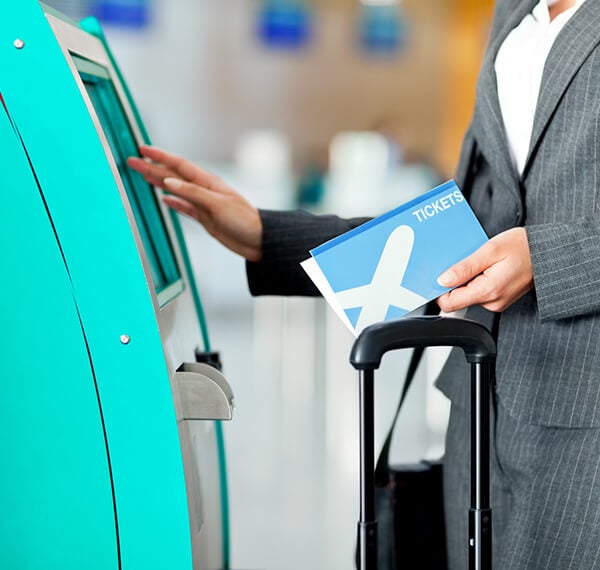
Tackle Travel and Hospitality Fraud
Travel and Hospitality Scams and Fraud Patterns

When fraudsters are successful, the consequences can extend beyond financial losses for both the business and their legitimate customers and include loss of trust, customer attrition and a damaged reputation. Some of the most pervasive fraud challenges targeting the travel and hospitality industry include:
Loyalty Program Fraud
Programs that incentivize customer loyalty and encourage repeat business represent an appealing target for fraudsters.
Loyalty programs often accumulate substantial value over time, especially for frequent flyers or customers making high-value purchases, attracting the attention of fraudsters looking to exploit these rewards for personal gain through illicit means such as scams or account takeover. Fraudsters may use loyalty points as virtual currencies and redeem them on behalf of a genuine customer whose account has been breached, in exchange for a wide range of goods and services or they can sell stolen points on the dark web, converting them into cash or valuable merchandise. This might easily go unnoticed for months, as victims of loyalty fraud might not become aware of the loss until they check their balance or decide to redeem the points.
Account Takeover
Account takeover happens when fraudsters access and gain control of genuine accounts. Once an account has been compromised, in addition to stealing points and rewards from a loyalty program, fraudsters can also access customers’ sensitive information, change their account details, make fraudulent requests, carry out unauthorized transactions or perform other illicit activities.
Card not Present (CNP) Fraud
Card-not-present fraud takes place when a transaction is made online or over the telephone. Fraudsters may attempt to use stolen financial information to purchase airline tickets or make other high-value bookings. Airline tickets that are fraudulently purchased are often resold by fraudsters at bargain prices through social networks, through scam websites or through the dark web.
Refund Fraud
When fraudsters gain access to legitimate customer accounts, they can claim compensations or refunds for alleged damage, lost baggage or delays. Legitimate customers can also be the perpetrators of fraud if they dispute a valid charge and make a false refund claim.
Impersonation Fraud
Fraudsters may create websites that mimic legitimate travel agencies or ticketing platforms to scam unsuspecting customers. These fraudulent websites may use similar domain names, logos, and website designs to those of reputable sites and appear professional. Scam websites often offer tickets or travel arrangements at significantly discounted prices to entice customers, however fraudsters collect payments for booking that are not made or are different to what the customer is expecting or sell tickets that are not real or are never sent. Unsuspecting victims might expect reimbursement from the travel or ticketing company whose brand has been impersonated.
Gain an Enhanced View of Trust and Risk with LexisNexis® Risk Solutions
Our robust suite of fraud and identity solutions can help travel and hospitality companies make more informed trust and risk decisions at every touchpoint of the customer journey. Download the Solution Brief for an overview of fraud challenges targeting the travel and hospitality sector and how our solutions can help mitigate the risks.
Products You May Be Interested In
-
BehavioSec®
Transform human interactions into actionable intelligence
Learn More -
Digital Identity Network
Gain the ability to recognize good, returning customers and weed out fraudsters, all in near real time
Learn More -
LexisNexis® Emailage®
Get a clear picture of who is behind a transaction and the associated risk, so your team can automate decision workflows, improve customer experience, all in near-real time
Learn More -
ThreatMetrix®
Enable cybersecurity and risk management through data science innovation and shared intelligence
Learn More
